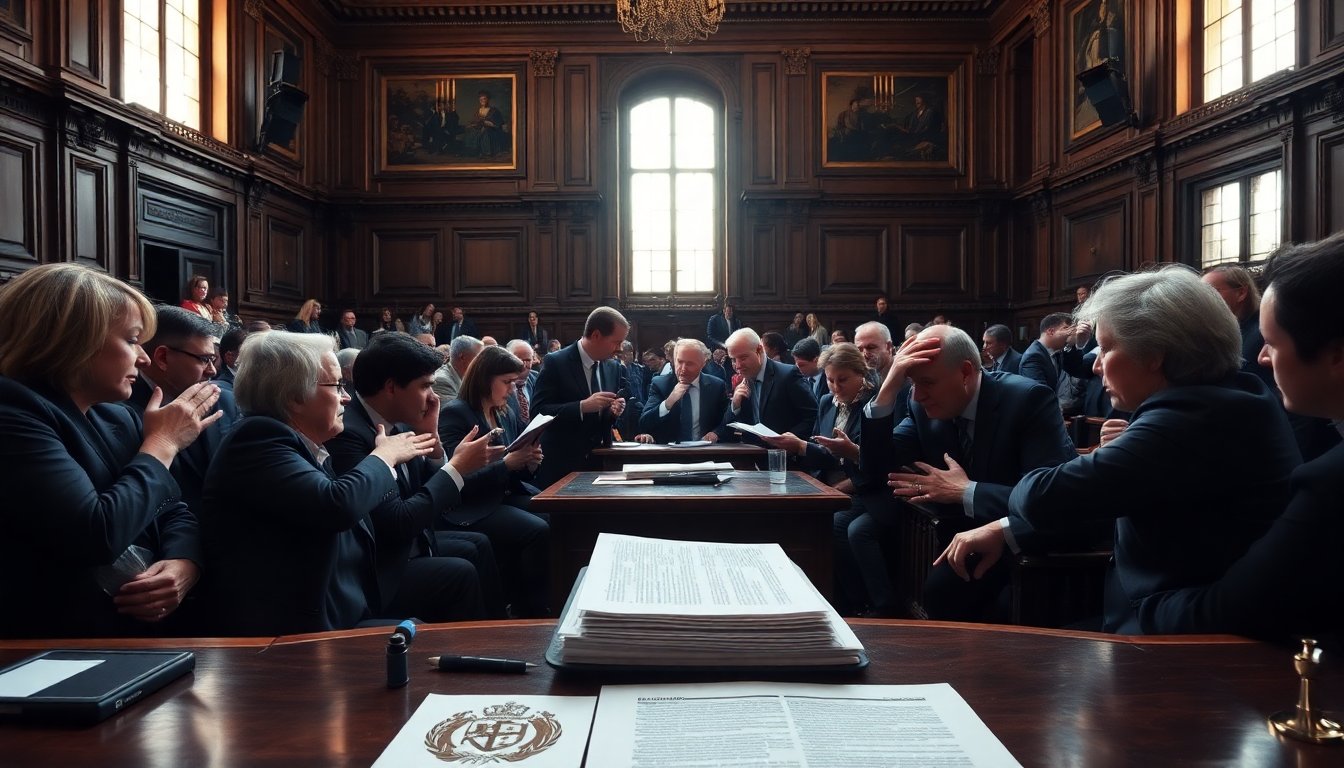Table of Contents
In a momentous session held on Thursday, the French National Assembly witnessed a historic vote that saw a nonbinding resolution introduced by the far-right National Rally party approved for the first time. This vote, which has profound implications for France’s political landscape, signals a potential *normalization* of far-right ideologies within mainstream politics.
The resolution, which calls for the repeal of a 1968 accord with Algeria, garnered approval from 185 lawmakers, while 184 opposed it. The support for this resolution came not only from Marine Le Pen’s party but also from a coalition of right-wing and centrist legislators, raising questions about the future political alliances in France.
Significance of the vote
This narrow victory for the National Rally is emblematic of shifting political tides in France. The resolution, while nonbinding, marks a critical symbolic win for Le Pen’s party, which has historically faced exclusion from mainstream political discussions through a self-imposed *cordon sanitaire* that kept centrist and leftist parties at a distance from the far-right.
Support from unexpected quarters
What makes this vote particularly noteworthy is the unexpected support from some members of President Emmanuel Macron’s party. The absence of many lawmakers during the vote created a vacuum that allowed the National Rally to secure this significant milestone. Notably, 17 lawmakers from the center-right Horizons party, led by former Prime Minister Edouard Philippe, also contributed to the resolution’s passage.
Previously, figures within Macron’s camp, like Gabriel Attal, have expressed the necessity to reconsider the 1968 agreement, especially given the rising tensions between France and Algeria. However, Attal’s absence during this pivotal vote showcased a lack of unity among the lawmakers who were supposed to oppose the far-right agenda.
Political ramifications
Opposition parties, particularly those on the left, have been vociferous in their criticism of Macron’s party following this vote. They argue that this represents a dangerous precedent, allowing a party with a *racist* history to gain legitimacy and influence in legislative matters. This sentiment was echoed by various left-wing groups who see this as a failure of Macron’s party to uphold democratic values.
Future of the National Rally
As the National Rally continues to gain traction, it raises questions about the future of political discourse in France. Le Pen, buoyed by this success, called on Prime Minister Sébastien Lecornu to act on the resolution and repeal the agreement with Algeria. Such actions could further entrench the far-right’s influence in French politics.
Despite the non-binding nature of this resolution, its passage could inspire other far-right movements across Europe, emphasizing a growing acceptance of similar ideologies. The political landscape in France is shifting, and the National Rally’s newfound ability to push legislative initiatives is a crucial indicator of this evolution.
Conclusion
The approval of this resolution by the French National Assembly marks a significant turning point in the political narrative of France. It not only underscores the National Rally’s rising influence but also poses serious questions about the future of French democracy and the potential normalization of far-right ideologies.
As the political climate continues to evolve, the implications of this vote will likely resonate beyond France, impacting the dynamics of European politics as a whole. The coming months will be crucial in determining how the government and opposition parties respond to this shift and what it means for the electorate.


